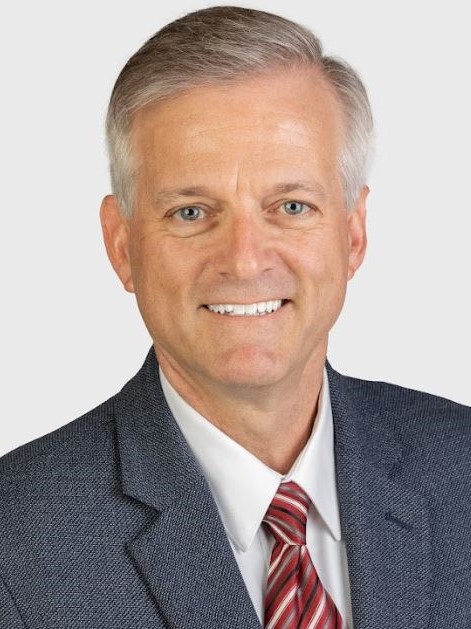Specialty Pharmacy Residents Receive On-The-Job Training

Specialty pharmacy has experienced tremendous growth in recent years. Specifically, the number of specialty pharmacies grew 315% — from 378 in 2015 to 1,570 in 2021 — in six years.1 And, specialty medicines now account for 55% of spending, up from 28% in 2011, driven by growth in auto-immune and oncology.2 With that evolution comes the need for training in the clinical and administrative aspects of specialty pharmacy practice.
Anticipating this growth more than a decade ago, AllianceRx Walgreens Pharmacy joined forces with Duquesne University School of Pharmacy to develop the ASHP-accredited Program Year 1 (PGY1) Community Pharmacy Practice Residency with a focus in specialty pharmacy, now in its 14th year.
The initial goal of the residency program was to provide pharmacy residents with opportunities to develop the fundamental skill set necessary to excel in the rapidly expanding specialty pharmacy environment. That still holds true today.
Potential pharmacy residents are typically individuals with an interest in specialty pharmacy, who are self-motivated, adaptable to changing situations and have the ability to lead teams as well as collaborate with multiple stakeholders.
William Trombatt, PharmD, CSP, manager of clinical programs at AllianceRx Walgreens Pharmacy and a former PGY1 Community Pharmacy resident, says he enjoyed becoming knowledgeable in many specialty diseases during his residency. “In addition to disease-specific knowledge, a business rotation provided me with a valuable understanding of the operational processes that keep the pharmacy running smoothly,” he says.
“Spending time with our clinical services department provided a unique experience where clinical aspects meet business needs. This included utilization management programs and designing patient-facing clinical programs. Overall, this wide variety of experiences helped me grow as a specialty pharmacist and set me on a path to take on additional responsibilities within the company.”
Another former pharmacy resident, Anastasia Abramson, PharmD, MBA, pharmacy supervisor of patient management services at AllianceRx Walgreens Pharmacy, says she enjoyed seeing all aspects of the specialty pharmacy business and understanding the role of our key stakeholders.
“The residency program provided excellent clinical training on specialty disease state therapy and patient management that prepared me to seamlessly transition from resident to clinical staff pharmacist with an advantage of fully understanding the bigger picture of our organization and the role our clinical teams play in driving success,” says Dr. Abramson.
Offering the residency program is another example of AllianceRx Walgreens Pharmacy’s commitment to specialty pharmacy and to the training of future specialty pharmacists and industry leaders.
Interested In Learning More?
For information on the residency program, contact the residency program director:
Pamela Koerner, BSPharm, PharmD, BCPS
Duquesne University School of Pharmacy
600 Forbes Avenue
Pittsburgh, PA 15282
412.396.6372
[email protected]
Five Things to Know about the PGY1 Community Pharmacy Practice Residency
• Based at AllianceRx Walgreens Pharmacy located in Pittsburgh, Pennsylvania. This premier specialty pharmacy location offers a variety of patient care services to support patients who are managing chronic life-threatening or rare conditions, including cancer, hemophilia, cystic fibrosis, multiple sclerosis, psoriasis, and rheumatoid arthritis, among others.
• Gain valuable insights as part of a multidisciplinary team. The clinical pharmacists work closely with health care professionals, patient care advocates, insurance verification specialists and patients to meet the needs of the patient’s medication therapy. In addition, residents will gain insights on the pharmacy practice management issues that can affect the delivery of care for patients taking specialty medications.
• Conduct meaningful research on a topic of their choice. Specialty pharmacy residents design and conduct a practice-based research project, in its entirety, present the findings at the Academy of Managed Care Pharmacy (AMCP) Annual Meeting and submit it for publication in a refereed journal. They also contribute to the specialty pharmacy weekly and monthly publications.
• Not required, but highly recommended. Completing a pharmacy residency is not a requirement of becoming a pharmacist. However, specialty pharmacy residencies help prepare trainees for careers in diverse clinical, managed care, community-based, and academic practice settings.
• Generous benefits make residency attractive. In addition to the hands-on experience caring for patients with rare diseases or chronic conditions, residents’ benefits include a competitive stipend, comprehensive medical plan, travel allowances for one pharmacy-related conference, flexible time off, and paid membership to AMCP.





